Previous Grants
- Project
LAUNCH
2019-2024 - Trauma Treatment
Program
2009-2021 - Project
Thrive
2012-2017 - Prenatal Substance
Use Prevention
2006-2013 - Family and Child
Treatment Services (FACTS)
2008-2012 - Neurocognitive
Habilitation Therapy
2006-2009 - Neurocognitive
Habilitation Therapy
2001-2005
LAUNCH
2019-2024
- Our Previous Projects
Project LAUNCH
2019-2024
- Improved cross-system collaboration, communication, joint decision making and shared values
- Comprehensive screening and assessment in child service agencies
- Behavioral health integration into primary care settings
- Increased access and use of Early Childhood Mental Health Consultation
- Increased availability of family strengthening and training services
- Implementation of a comprehensive public awareness campaign
Project Team
Emily Odiase
Co-Project Director
Anne Wells
Co-Project Director
Cassandra Boyd
Project Evaluator
Robert Powell
Project Coordinator, Partnership 4 Resilience
Program
2009-2021
- Our Previous Projects
Trauma Treatment Program
2009-2021
SAMHSA funded Trauma Treatment Program
Children’s Research Triangle’s (CRT) Trauma Treatment Program (TTP) was an assessment-driven, trauma informed intervention program based in Chicago, Illinois. Funded from 2009-2021 as a Community Treatment and Service Center for the National Child Traumatic Stress Network, the TTP made trauma-informed therapeutic services available to children and adolescents ages 0 to 18 by providing and evaluating evidence-based interventions, and educating professionals, caretakers, and other community members about the impact of trauma on youth. The TTP was an expansion of the existing program at CRT, thereby increasing the number of children served in the community. The TTP followed a comprehensive screening, assessment, and treatment process, which included foundational material from the NCTSN’s 2012 Breakthrough Series Collaborative, Improving Comprehensive Assessments and Case Formulations by Implementing the NCTSN Core Curriculum. As part of the TTP, all children and adolescents referred to CRT for services underwent an initial screening for trauma exposure. Children identified as having a history of trauma were referred for an assessment designed to obtain more information about the child’s trauma history, behavioral presentation, and trauma-related symptomatology. A high standard of care was ensured by ongoing training, consultation, and reflective supervision for TTP staff and partner sites. The TTP worked in multiple under-resourced community settings, requiring the use of a variety of treatment interventions to best meet the needs of the clients served. Consequently, the TTP employed several Evidence-Based Practices, including Child-Parent Psychotherapy (CPP), Trauma-Focused Cognitive Behavioral Therapy (TF-CBT), and Structured Psychotherapy for Adolescents Responding to Chronic Stress (SPARCS). During each of the five years of funding, 400 children and adolescents were screened for traumatic histories; 225 underwent a systematic trauma assessment; 60 participated in TTP trauma-focused interventions; 60 participated in Youth Trauma Workshops; one partner agency received intensive consultation services; 100 community members received training about the mental health impact of childhood trauma, and 50 community members received training on prevention/mental health promotion topics related to childhood trauma. Taking into account overlap in screening, assessment, and treatment, CRT provided direct services to a minimum of 8,220 individuals over the twelve years. We are pleased that this grant also allowed us to expand services to military families in the Chicagoland area.
Project Team
Linda Schwartz, Ph.D.
Project Director
Anne Wells, Ph.D.
Project Evaluator
Julianna Wesolowski, LCPC
Project Coordinator
Samantha Orbach, PsyD
Training Coordinator
Thrive
2012-2017
- Our Previous Projects
Project Thrive
2012-2017
ACF Funded Project Thrive
Project Team
Ira Chasnoff, M.D.
Project Director
Anne Wells, PhD
Project Evaluator
Erin Telford, PsyD
Project Coordinator
Eric Seto, PsyD
Assistant Project Coordinator
Use Prevention
2006-2013
- Our Previous Projects
Prenatal Substance Use Prevention
2006-2013
MCHB Funded Prenatal Substance Use Prevention
Project Team
Ira Chasnoff, M.D.
Project Director
Anne Wells, PhD
Project Evaluator
Treatment Services (FACTS)
2008-2012
- Our Previous Projects
Family and Child Treatment Services (FACTS)
2008-2012
From 2008 to 2012, the Children’s Bureau of the Administration of Children and Families awarded CRT a Regional Partnership Grant (RPG). In order to meet the aim of promoting family safety and permanency for children in Southern Illinois who had been affected by exposure to methamphetamine or other substances, we developed an integrated and collaborative system of care in Southern Illinois that identified and addressed the developmental, behavioral and mental health needs of the affected child and family.
The project had seven goals
- Public and private agencies in the Southern Region will deliver collaborative services within an integrated system of care for children and families who have been prenatally or environmentally exposed to methamphetamine or other substances of abuse.
- Biological/foster/adoptive families will be educated on the effects of prenatal and environmental exposure to methamphetamine and other substances of abuse and how to access services for the family.
- An increased number of professionals in Southern Illinois will demonstrate knowledge about the impact of prenatal or environmental exposure to methamphetamine or other substances of abuse and be capable of providing comprehensive assessment and treatment services to children who have been exposed.
- DCFS caseworkers and substance abuse treatment providers will refer prenatally or environmentally exposed children to FACTS for a full assessment of cognitive, behavioral, developmental, and mental health functioning, as well as specialized therapeutic services.
- The physical and behavioral health status of prenatally and environmentally exposed children in Southern Illinois will be improved through the delivery of specialized, comprehensive assessment services.
- The physical health and behavioral health status of prenatally and environmentally exposed children and families in Southern Illinois will be improved through the delivery of specialized, comprehensive treatment services at FACTS.
- Permanency, stability and safety for children who have been prenatally or environmentally exposed to methamphetamine or other substances will be increased.
Project Team
Anne Wells, Ph.D.
Project Evaluator
Erin Telford, Psy.D.
Project Coordinator
Ira Chasnoff, MD
Principal Investigator
Habilitation Therapy
2006-2009
- Our Previous Projects
Neurocognitive Habilitation Therapy replication study/Parents and Children Together
2006-2009
Project Team
Anne Wells. Ph.D.
Project Director
Erin Telford, PsyD
Training Director
Ira Chasnoff, MD
Principal Investigator
Linda Meyers, Ph.D.
Co-Principal Investigator
Habilitation Therapy
2001-2005
- Our Previous Projects
Neurocognitive Habilitation Therapy
2001-2005
From 2001-2005, the Centers for Disease Control and Prevention funded CRT to develop and evaluate a Neurocognitive Habilitation Project, involving the identification and assessment of children ages six to 12 with FAS or ARND. CRT clinicians created a group therapy curriculum for the children and their parents designed to educate them about FASD’s and give strategies for managing the neurodevelopmental effects of prenatal alcohol exposure, with a focus on learning techniques for self-regulation. This curriculum was based on the Alert Program® developed by occupational therapists, Mary Sue Williams and Sherry Shellenberger. Data collected during this project were used in four subsequent publications: Chasnoff, I.J. et al. (2015), Wells, A.M., et al. (2012), Chasnoff, IJ, et al. (2010), and Bertrand, J. et al. (2009).




